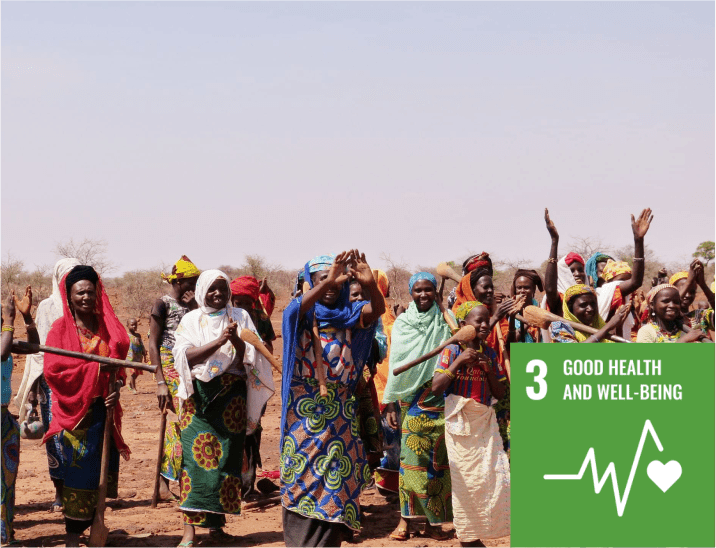SDG Goal 3 – Good Health and Well-Being

Sustainable Development Goal 3 aims to ensure healthy lives and promote well-being for all at all ages.
However, this goal is far from being achieved for Communities Discriminated on Work and Descent (CDWD), who face multiple barriers to accessing health care and social protection. CDWD are among the most marginalized and excluded groups in the world, often subjected to violence, exploitation, and segregation based on their inherited occupation or social status. They are disproportionately affected by poverty, malnutrition, infectious diseases, and environmental hazards. The COVID-19 pandemic has exacerbated their vulnerability and discrimination, exposing them to higher risks of infection, morbidity, and mortality.
To achieve SDG3 for CDWD, it is essential to address the root causes of their discrimination and exclusion and to ensure their full participation and empowerment in health-related decision-making. This requires a human rights-based approach that recognizes CDWD as equal and dignified members of society, and that guarantees their access to quality, affordable, and inclusive health services and social protection systems.
The COVID-19 virus might be democratic in the sense that it infects people without any discrimination, not distinguishing the rich from the poor and. Yet, it has proven that pandemics are not a democratic – Communities Discriminated on Work and Descent (CDWD) are disproportionately and severely affected by the disease as also with the collapse of economies and healthcare systems.
While the virus did not discriminate between rich and poor, the high infection and death rates among CDWD combined with the non-existent or very low vaccination rates proves the inequalities within and among countries.
At the peak of the COVID-19 pandemic, not a single doctor was available as part of the public healthcare system in 46 municipalities in Brazil with a large Quilombola presence and only one doctor was available in 67 municipalities. In 745 municipalities with Quilombola communities, there is only one doctor for more than 1,000 inhabitants.
There have been several cases of CDWD being discriminated against in cases of access to quarantine facilities, economic relief packages, and other social security measures. Take the example of South Asia. As infections peaked, Dalits were restricted from accessing public water/sanitation facilities for being considered “unclean”. The practice of untouchability that was being contested over decades acquired a new legitimacy.
Healthcare is a luxury in countries like India, where the society is extremely unequal. According to Oxfam India’s report ‘India’s Unequal Healthcare Story’, Dalits and members of India’s other marginalised communities are lagging behind more privileged groups in terms of health and access to healthcare. The report says that the gap has been exacerbated during the COVID-19 pandemic.

